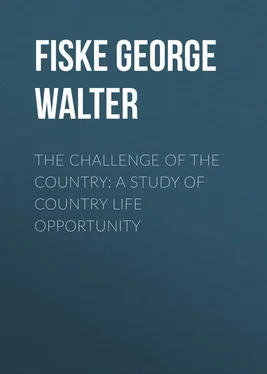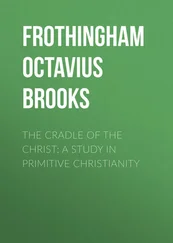George Fiske - The Challenge of the Country - A Study of Country Life Opportunity
Здесь есть возможность читать онлайн «George Fiske - The Challenge of the Country - A Study of Country Life Opportunity» — ознакомительный отрывок электронной книги совершенно бесплатно, а после прочтения отрывка купить полную версию. В некоторых случаях можно слушать аудио, скачать через торрент в формате fb2 и присутствует краткое содержание. Жанр: foreign_antique, foreign_prose, на английском языке. Описание произведения, (предисловие) а так же отзывы посетителей доступны на портале библиотеки ЛибКат.
- Название:The Challenge of the Country: A Study of Country Life Opportunity
- Автор:
- Жанр:
- Год:неизвестен
- ISBN:нет данных
- Рейтинг книги:5 / 5. Голосов: 1
-
Избранное:Добавить в избранное
- Отзывы:
-
Ваша оценка:
- 100
- 1
- 2
- 3
- 4
- 5
The Challenge of the Country: A Study of Country Life Opportunity: краткое содержание, описание и аннотация
Предлагаем к чтению аннотацию, описание, краткое содержание или предисловие (зависит от того, что написал сам автор книги «The Challenge of the Country: A Study of Country Life Opportunity»). Если вы не нашли необходимую информацию о книге — напишите в комментариях, мы постараемся отыскать её.
The Challenge of the Country: A Study of Country Life Opportunity — читать онлайн ознакомительный отрывок
Ниже представлен текст книги, разбитый по страницам. Система сохранения места последней прочитанной страницы, позволяет с удобством читать онлайн бесплатно книгу «The Challenge of the Country: A Study of Country Life Opportunity», без необходимости каждый раз заново искать на чём Вы остановились. Поставьте закладку, и сможете в любой момент перейти на страницу, на которой закончили чтение.
Интервал:
Закладка:
George Walter Fiske
The Challenge of the Country: A Study of Country Life Opportunity
Why does he want to leave his
father’s farm to go to the city? He
ought to be able to find his highest
happiness and usefulness in the
country, his native environment,
where he is sadly needed. Can we
make it worth while for this boy to
invest his life in rural leadership?
This study of country life opportunity and analysis of various phases of the rural problems in America has been written at the request of the International Committee of Young Men’s Christian Associations, particularly for their County Work and Student departments. The former desired a handbook for the training of leaders in rural Christian work and the latter a textbook for the use of college students in Christian Associations wishing to study the fundamentals of rural social service and rural progress. It is the sincere hope of those who have asked for this book that it may bring to very many earnest young men and women, and especially in the colleges of the United States and Canada, a challenging vision of the need of trained leadership in every phase of rural life, as well as a real opportunity for life investment.
Being the first book in the field which makes available the results of the Thirteenth U. S. Census, it is hoped that its fresh treatment of the latest aspects of the rural problems will commend itself to general readers who are interested in the Rural Life Movement and the welfare of the rural three-fifths of America.
The author acknowledges with thanks the courtesy of the Presbyterian Board of Home Missions, the Macmillan Company and Rural Manhood , in granting the use of the cuts appearing in this volume.
The glare of the city dazzles the eyes of many a man in college. For a generation college debates, in class, club and fraternity, have popularized all phases of the city problem, the very difficulties of which have challenged many a country-bred boy to throw in his life where the maelstrom was the swiftest.
In recent years however the country problem has been claiming its share of attention. It has grown to the dignity of a national issue. The great Rural Life Movement, starting from the Agricultural Colleges, has enlisted the intelligent cooperation of far-visioned men in many professions. Thinking people see clearly that in spite of the growth of cities, the nation is still rural. Agriculture is still the main business of our people. The nation’s prosperity still depends upon “bumper crops.” The nation’s character still depends upon country conscience. Not only is it true that most of our leaders in politics, in the pulpit, in all professions and in the great industries were born and bred in the country; the city is still looking to the country to develop in large degree the leadership of the future.
Were it not for the immigration tides and the continuous supply of fresh young life from the country, the city would be unable to maintain itself; it would be crushed beneath its burdens. For the city is the “Graveyard of the national physique.” With its moral and industrial overstrain, it is the burial place of health, as well as youthful ambitions and hopes, for many a young person not accustomed to its high-geared life. The nervous system rebels against the city pace. In an incognito life the character crumbles under the subtle disintegration of city temptations. The young man with exceptional ability finds his way to high success in the city; the average man trudges on in mediocrity, lost in the crowd – just a “high private in the rear rank,” when he might have stayed in the country home and won a measure of real influence and substantial happiness in his natural environment.
Not only has the lure of the city drawn thousands of young people who were better off in their country homes, the real claims of the country village upon those young people have but timidly been uttered. Not only has the call of the city been magnified by artificial echoes, the call of the open country has scarcely been sounded at all. The opportunity of the city as a life arena has been advertised beyond all reason. It is time to talk of the life chance for stalwart young Americans to stay right in the country and realize their high privileges.
One per cent. of our young manhood and womanhood is found in college halls. They are in many respects the chosen youth of the land. A few are sent there by indulgent parents, but the great majority are there mainly because of personal ambition, the urge of a mighty impulse to make their lives count, and to get the best preparation for the work of life, wherever their lot may be cast. Yet selfishness is not the main element in this ambition. The truest idealists, the finest altruists are right here among these eager college students. In their four years of liberal training they are often reminded that the real motive of it all is “Education for power and power for service.”
The subtle sarcasm “You may lead a boy to college but you cannot make him think” is quite needless in most cases. It would be truer to say you cannot stop his thinking. Increasingly, in the later years of college life, the thinking takes the direction of life planning, the discussion of a real life-mission. Not only in the so-called Christian colleges, but even in the State universities, which are fast becoming centers of real religious life and power, the best men and women are now planning their future according to what they believe to be the will of God for them. Many have caught the vision of the possibility of genuine consecration in any honorable life calling, making it a life of genuine service, which after all is life’s greatest opportunity. For such young men and women the question simply is: What shall this service be and where shall it be rendered?
The same problem of life investment is confronting the young men and women who are not in the colleges. Idealism is not at all confined to college halls. Wherever this book may find young men and women weighing seriously their great life question, may it help them to see the real opportunity offered them in the roomy fields of rural life and leadership.
CHAPTER I
THE RURAL PROBLEM
Early in the year 1912, some five hundred leading business and professional men of the cities of New York state met at a banquet, under the auspices of the Young Men’s Christian Association. During the evening it was discovered that nine-tenths of these influential city leaders had come from country homes. They were born on farms in the open country or in rural villages of 2,500 population or less.
Facts like these no longer surprise intelligent people. They are common to most cities, at least on our American continent; and herein is the crux of the rural problem. At great sacrifice for a century the country has been making the city. Doubtless thousands of incompetent citizens have been forced off the farms by the development of farm machinery; and the country was little poorer for their loss. But in surrendering to the city countless farm boys of character and promise who have since become the city’s leaders, many a rural village has suffered irreparably. To be sure this seems to be one of the village’s main functions, to furnish leaders for the city; and it has usually been proud of its opportunity. It is the wholesale character of this generous community sacrifice which has developed trouble.
The rural problem is the problem of maintaining in our farm and village communities a Christian civilization with modern American ideals of happiness, efficiency and progress.
Читать дальшеИнтервал:
Закладка:
Похожие книги на «The Challenge of the Country: A Study of Country Life Opportunity»
Представляем Вашему вниманию похожие книги на «The Challenge of the Country: A Study of Country Life Opportunity» списком для выбора. Мы отобрали схожую по названию и смыслу литературу в надежде предоставить читателям больше вариантов отыскать новые, интересные, ещё непрочитанные произведения.
Обсуждение, отзывы о книге «The Challenge of the Country: A Study of Country Life Opportunity» и просто собственные мнения читателей. Оставьте ваши комментарии, напишите, что Вы думаете о произведении, его смысле или главных героях. Укажите что конкретно понравилось, а что нет, и почему Вы так считаете.












